How long will Marvel Studios maintain its level of success? It’s a question critics and fans ponder with the arrival of each new MCU movie. Marvel has enjoyed unparalleled success since 2008’s Iron Man but, to paraphrase Thanos in Avengers: Endgame, the MCU’s end is inevitable. Well, at some point anyway. So far, Marvel’s Phase 4 slate has kept the MCU on track. Black Widow and Shang-Chi have been well received by critics and, despite the ongoing pandemic, have performed admirably at the box office. Now, though, Marvel is arguably facing its toughest test in a while. Eternals, the MCU’s latest entry, is certainly ambitious – its story spans 7,000 years of human history, it introduces audiences to 10 new superheroes (a record for a Marvel movie) and it expands the scope of the MCU far beyond what we’d previously perceived it to be. But is it too progressive even by Marvel’s standards? The studio’s traditional movie blueprint has been an unqualified success, so deviating from that established formula may not sit well with audiences. After all, based on current review scores, Eternals hasn’t resonated with critics. In our view, though, Eternals is a better film than some critics have suggested. Marvel’s latest production doesn’t only tell a genuinely poignant and riveting tale, but it also goes to places that the MCU hasn’t before. And that makes it a movie unlike any we’ve seen from the studio so far. Set in the aftermath of Endgame, Eternals initially follows Sersi (Gemma Chan) and Sprite (Lia McHugh), two immortal superheroes secretly living among Earth’s human population. When the Eternals’ enemies, called the Deviants, suddenly reappear after 500 years, Sersi, Sprite and the returning Ikaris (Richard Madden) must reunite the Eternals, including Thena (Angelina Jolie), Kingo (Kumail Nanjiani) and Ajak (Salma Hayek) to protect humanity from them. The ‘emergence’, an event that threatens Earth’s very existence, coincides with the Deviants’ return, too. Oh, and the Eternals only have seven days to defeat their fierce foes and stop the cataclysmic event – no pressure there, then. What’s immediately apparent about Eternals is how its plot structure is radically different to those of previous Marvel movies. Taking inspiration from non-superhero films including The Godfather Part 2, Eternals weaves two narratives throughout its two-and-a-half-hour runtime. Its predominant storyline, set in the present, follows Sersi and company as they try to reunite the Eternals, defeat the Deviants and prevent the ‘emergence’ from happening. Meanwhile, the movie’s other narrative focuses on the Eternals’ past, which shows how these cosmic beings arrived on Earth, their impact on humanity’s evolution, and why the group disbanded. These juxtaposed storylines allow Eternals to introduce its large ensemble of superheroes in an unusual manner. Each character’s personality, motivations and reasons for leaving the group are established during the film’s flashbacks – a useful storytelling device that presents each superhero to viewers before their reunion with Sersi, Sprite and Ikaris. This time-hopping allows Eternals to play out like a novel, with each character introduction serving as a new ‘chapter’ that aids the pacing of its plot. Eternals’ alternating storylines don’t just allow it to focus on character development, though; it also helps from a world-building perspective. Eternals is a vast, visually arresting spectacle that feels like no other MCU movie before it We’re treated to a trip through time itself, with various periods of human history reimagined to offer a glimpse into how the Eternals influenced human evolution. This marriage between real-world history and the Eternals’ mythology is well executed by director Chloé Zhao. Eternals comes across as an origins story for these new characters and a semi-sequel to Avengers: Endgame, so Zhao had plenty to pack into the film’s runtime. Pleasingly, she achieves a satisfying balance between these two contrasts, which serves as a reminder of her prodigious talents. The Deviants’ threat, from the get-go, to both humanity and the Eternals also provided the option to introduce fight sequences earlier than in other Marvel movies, which is a pleasing divergence from the norm. Watching the Eternals work together to take down their foes is fun – each Eternal has unique powers, so teamwork is vital in order to defeat the Deviants. As for the Eternals, the dynamic between them in the present day plays out like a dysfunctional family. They’re a harmonious group upon their initial arrival on Earth but, as time passes, their bond is eroded as disagreements rise to the surface. After 7,000 years of living and working together, it’s unsurprising that these morally complex characters fall out and go their separate ways. Ironically, though, it makes these alien humanoids more relatable to audiences; in a sense, it demonstrates that Earth’s native population has shown the Eternals what it means to be human – a core theme at the heart of this movie. The Eternals’ unique personas make it difficult to work out their underlying motives, too. There’s an unsettling demeanour about some of them that suggests they know more than they’re letting on, both to their fellow Eternals and to audiences. This uneasiness may lead some viewers to anticipate the possibility of plot twists as the film progresses – and, without spoiling anything, they’d be right. A couple of major story revelations bring a subtle Shakespearean tragedy vibe to proceedings, which is reminiscent of 2018’s Black Panther. But, until these arrive, Eternals keeps its audience guessing about what they could be. It’s an intriguing blend of bait-and-switch and whodunnit tactics that feels fresh for the MCU, even if other films like Captain America: The Winter Soldier have previously dabbled with a similar narrative approach. Black Panther and The Winter Soldier aren’t the only Marvel movies Eternals borrows from. After one of the film’s major plot twists is revealed, the dilemma born from this revelation splits the Eternals in two. It's a division akin to that seen in Captain America: Civil War, where Steve Rogers and Tony Stark’s fallout over the Sokovia Accords leads to the Avengers’ eventual disbanding. Still, it’s another cool callback, whether intentional or not, to previous MCU flicks. It’s after Eternals’ big plot twists are revealed, however, that the movie starts to lose its way. Its plot becomes somewhat fragmented, decisions made by certain individuals are uncharacteristic of what they’ve displayed throughout the film, and, yes, we’re treated to a CGI-heavy third-act fight that’s a prerequisite for all Marvel movies. Sure, this sequence is well choreographed, and makes use of nearly all of the Eternals’ key abilities. But such battles feel par for the course for MCU films these days, so it’s hard to get overly excited about them. That is, unless they're truly exceptional set-pieces, such as Endgame's massive climactic battle. - Releases worldwide on Friday, November 5 - Based on Jack Kirby's Marvel comic creations - Directed by Chloé Zhao - The 26th movie produced by Marvel Studios That’s not the only issue with Eternals. Some hard edits are noticeable throughout, which can be jarring on occasion. The Deviants, despite being the film’s main villains, aren’t utilized fully, either, which is a pity as, when they are on screen, they make Eternals’ fight sequences all the more violent and barbaric. Eternals may be a PG-13 movie like every other Marvel film before it, but it’s certainly a more mature offering than we’ve seen before. Eternals is the first MCU flick to feature a sex scene, after all, so it is more adult-themed than its predecessors. Much like the Deviants, some of Eternals’ characters don’t get as much screen time as you would expect. Lauren Ridloff’s Makkari and Brian Tyree Henry’s Phastos, the MCU’s first deaf and openly gay superheroes respectively, aren’t fully introduced until the film’s second half. Even then, Eternals is barrelling towards its conclusion, and so they aren’t utilized to the same extent as Chan’s Sersi or Madden’s Ikaris. Given that their inclusions were supposed to mark a new era of representation in the MCU, it’s a bit disappointing that they don’t have greater roles in proceedings – notwithstanding the final battle – than we’d hoped. Eternals is a vast, visually arresting spectacle that feels like no other MCU movie before it. Yes, it’s funny, dramatic and action-packed, but it seems like a film that Marvel Studios wouldn’t have had the confidence to make five years ago. It’s far more universal and cosmic in scope than what’s come before and, surprisingly, it’s one of the more emotional Marvel tales in some time. That said, it isn’t a top-tier Marvel movie. There are a few too many niggles that prevent Eternals from being up there with the likes of Avengers: Infinity War. And that’s a pity, as Eternals had the cast, director and budget to rival the best films Marvel has to offer. Still, those issues don’t make it a really bad movie. It’s a worthy MCU entry that provides a thought-provoking meditation on what it means to be human, albeit one wrapped up in superhero clothing. It treads the line between being a wholly unique, standalone MCU movie and a necessary addition to Marvel’s cinematic universe, too, and lays the foundations for plenty of spin-off projects and upcoming films. Truly, Eternals is nothing like any other Marvel movie. And that’s a good thing, not a bad one. Marvel Studios’ Eternals will be released exclusively in theaters on Friday, November 5.
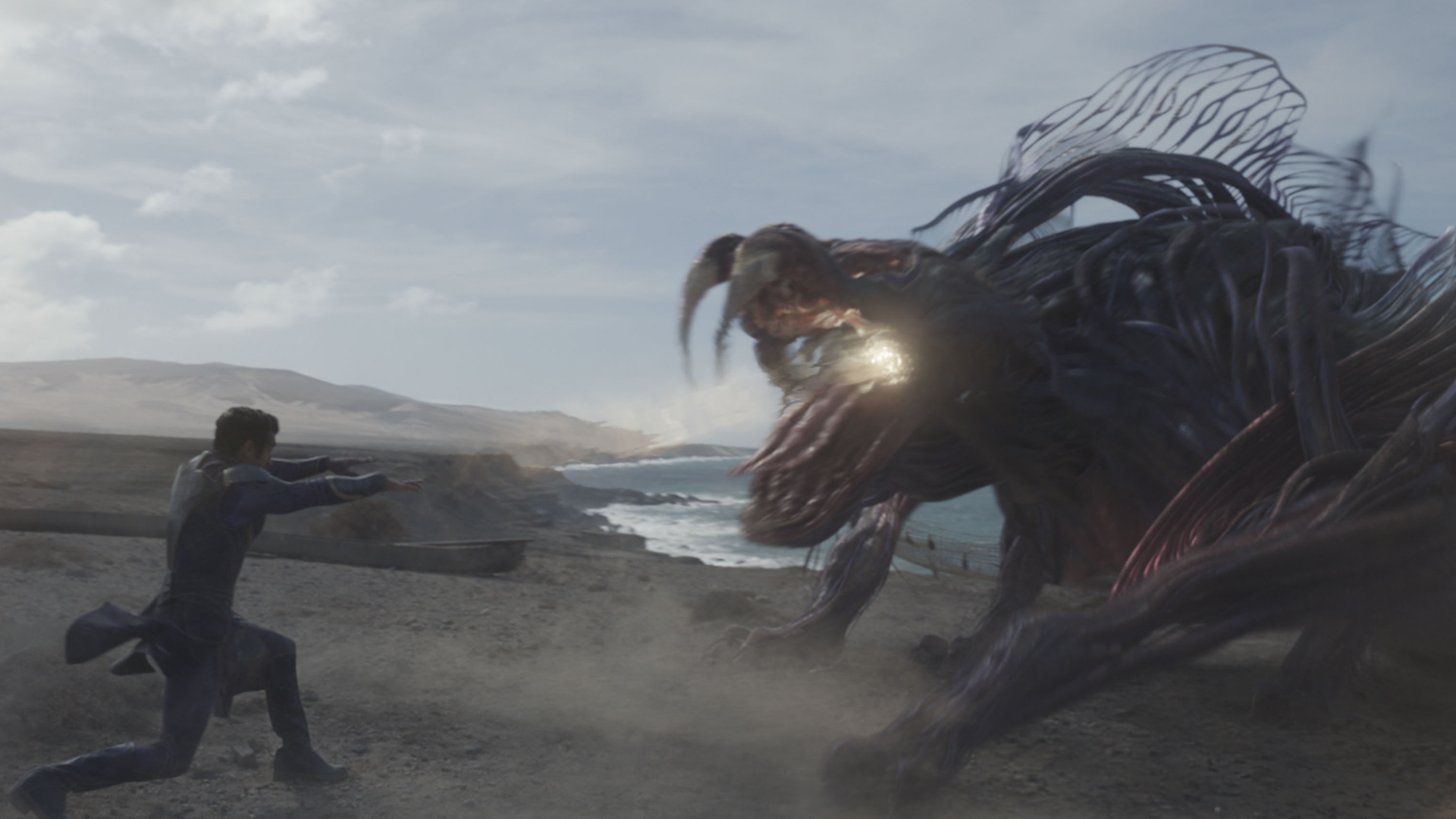
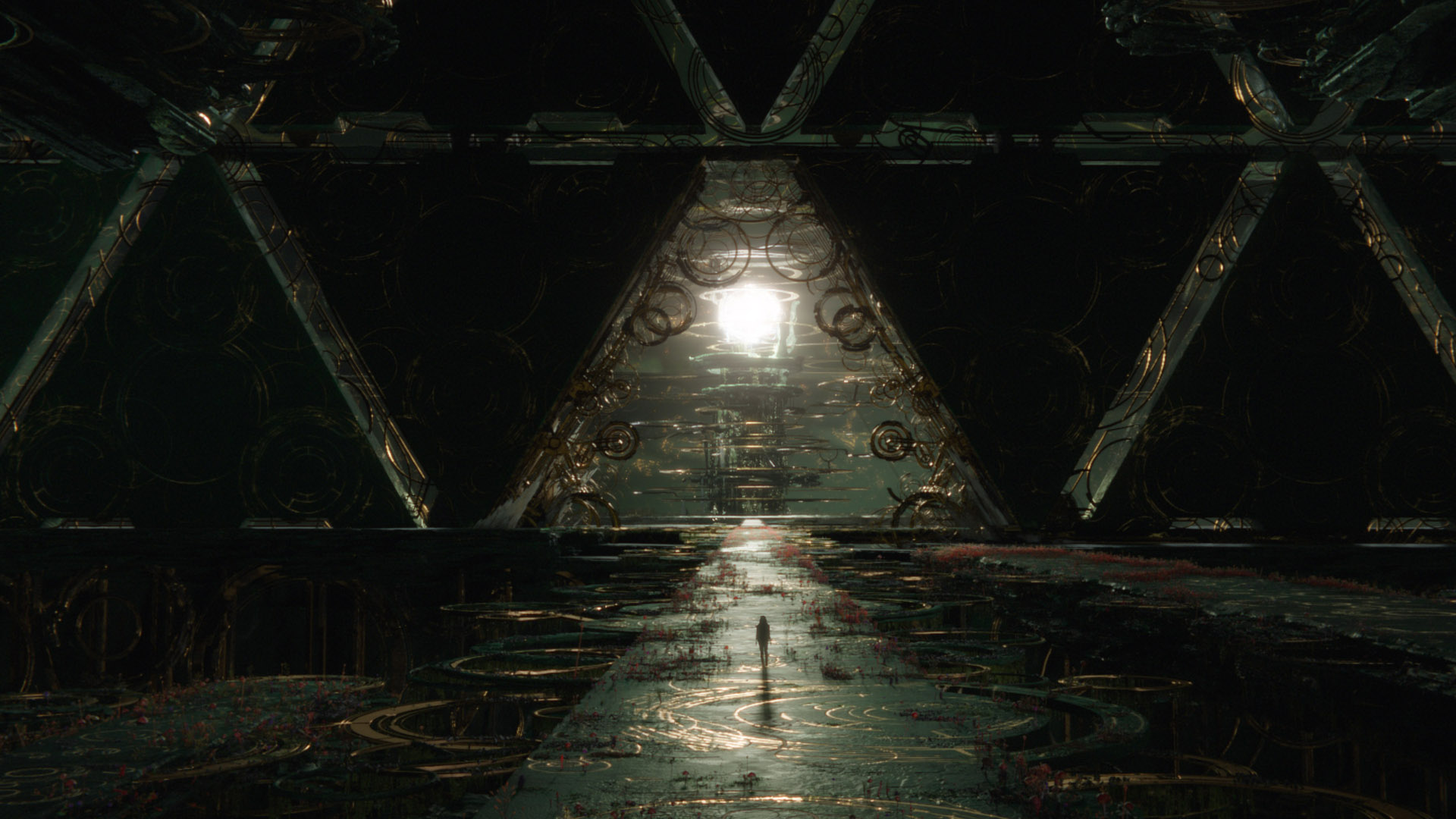
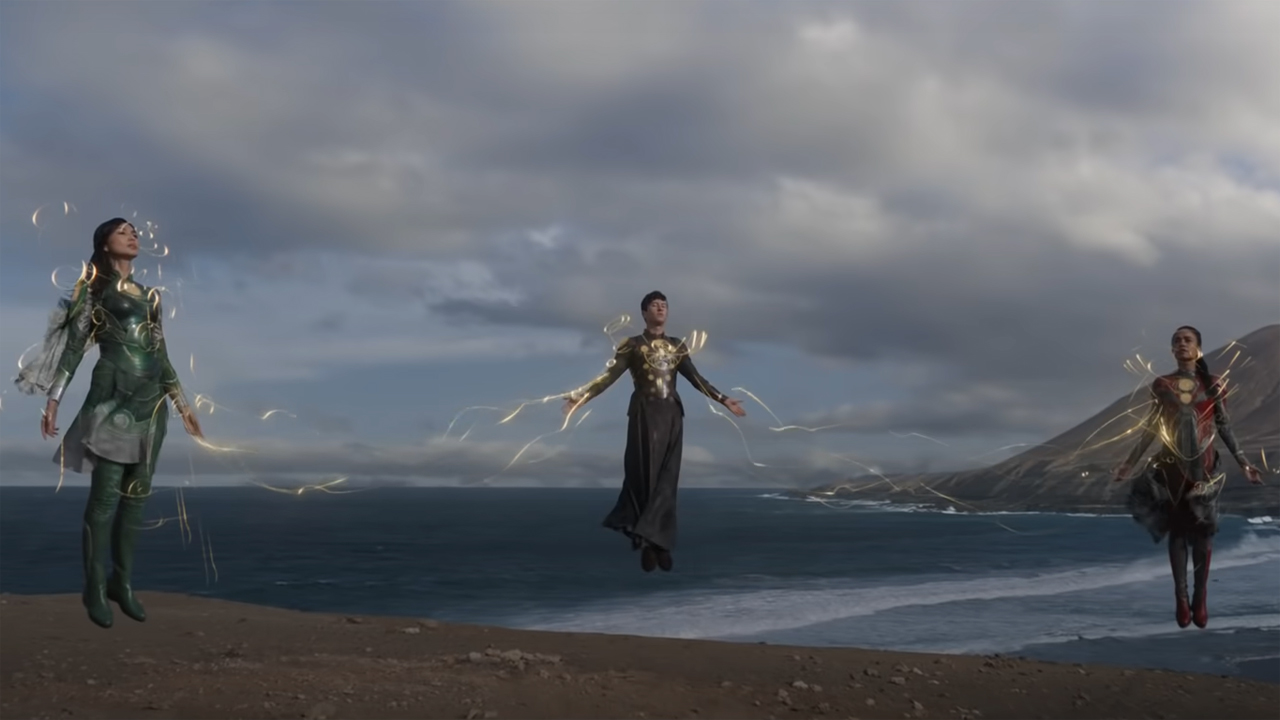
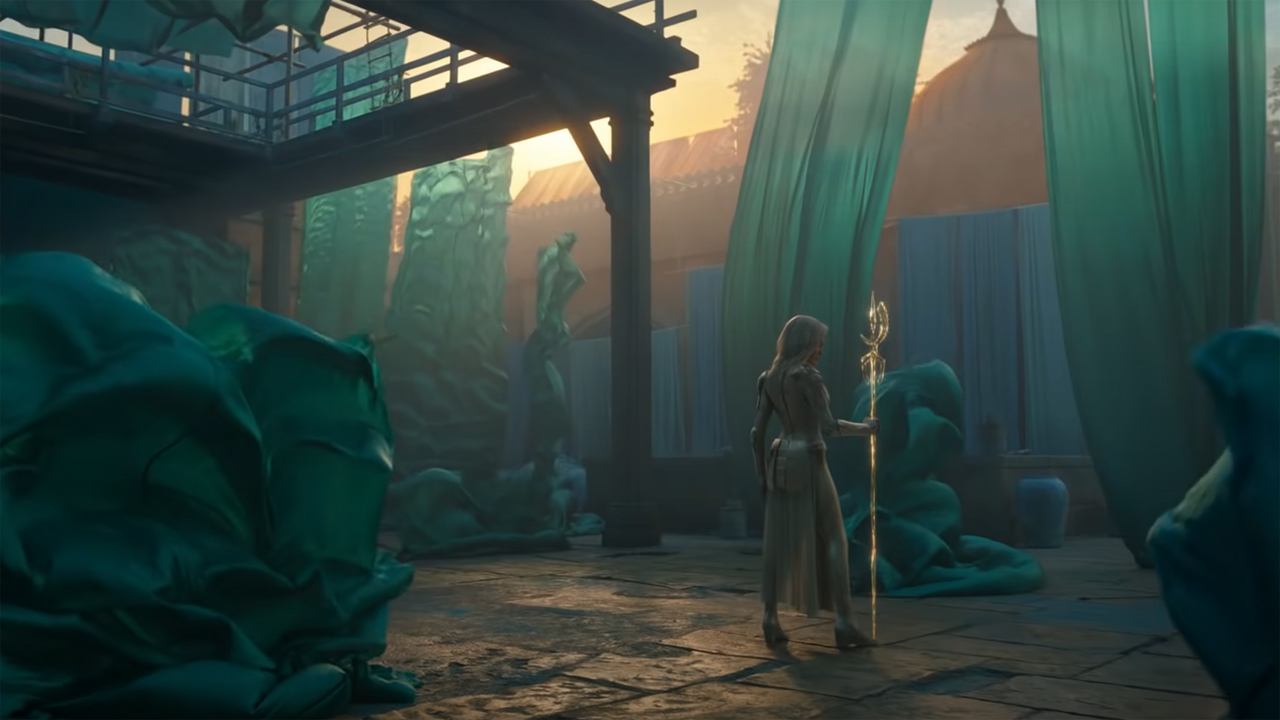
What we think
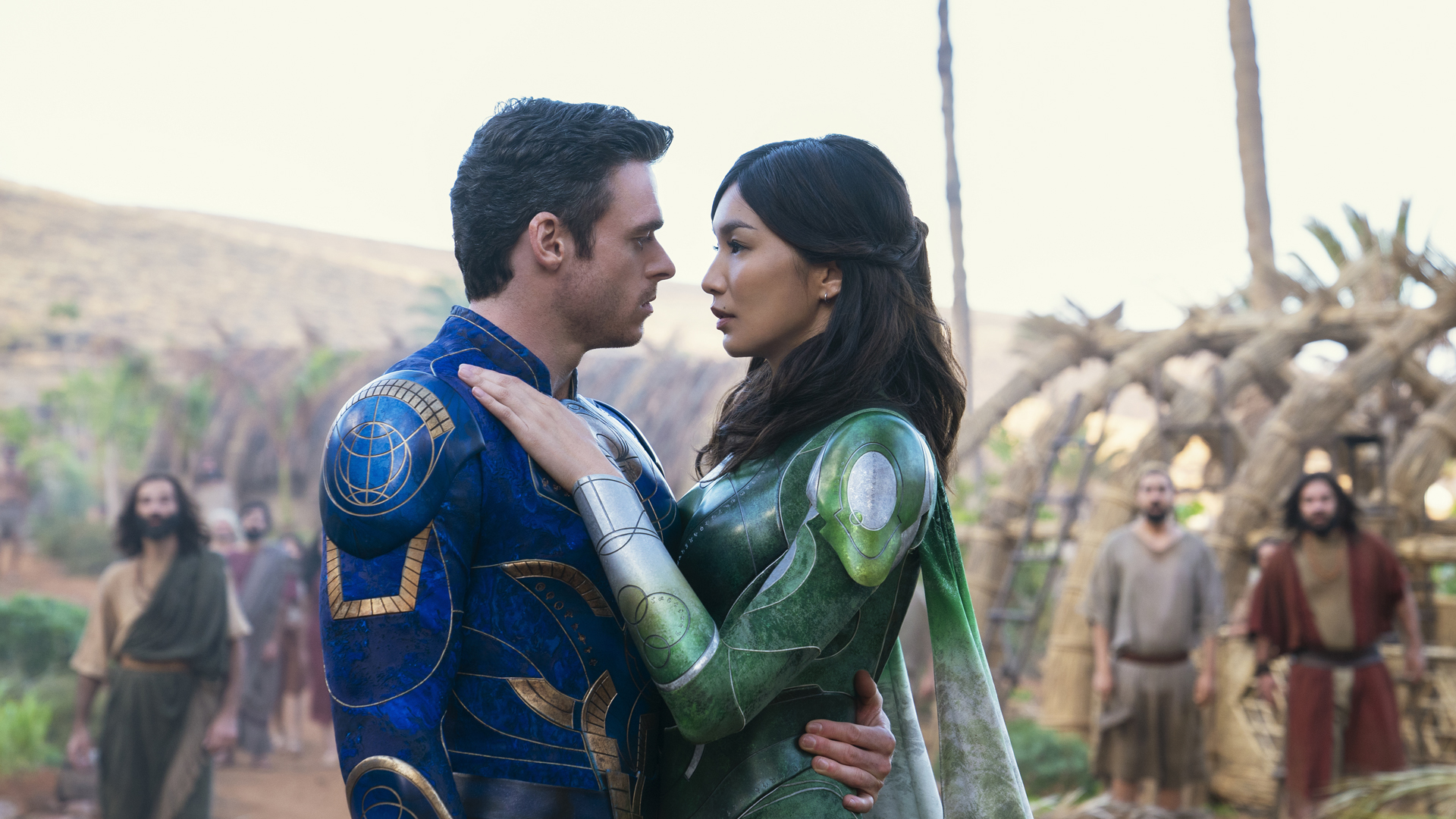
source https://www.techradar.com/news/eternals-is-unlike-any-other-mcu-movie-so-far-and-thats-a-good-thing/
About this movie
